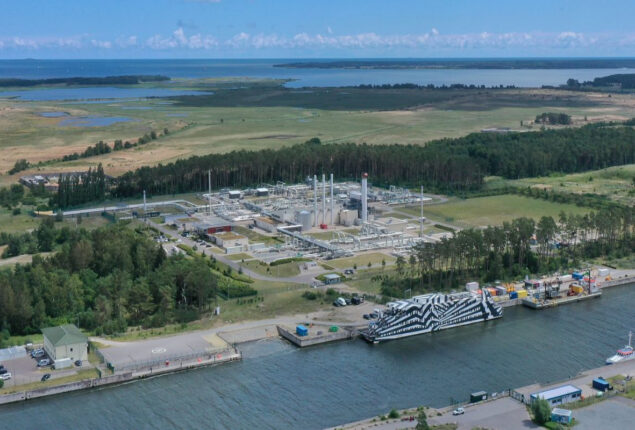German investors confidence drops, as gas crisis halts
A closely watched survey released on Tuesday showed that German investors confidence...

Europe prepares for potential gas catastrophe as demand increased owing to heat-wave
A historic heatwave has increased the demand for energy to help cool the continent’s homes and businesses, and now Europe is preparing for the possibility of a full-blown gas crisis later this week.
The Nord Stream 1 pipeline, which connects Russia’s gas to the EU, is scheduled to resume on Thursday following ten days of standard maintenance. As a result of the sanctions the European Union has put in place since Moscow’s invasion of Ukraine in February, there is growing concern that Russia may continue to cut off the water supply.
German Economy Minister Robert Habeck stated earlier this month that the nation must “be prepared for the worst.”
“Anything is possible. It’s possible that the gas will flow even more freely this time around. It’s possible that nothing will materialise at all “In a radio interview, Habeck stated.
Around 40% of Europe’s total pipeline imports from Russia are delivered to the continent through this pipeline each year, totaling 55 billion cubic metres of gas.
It’s possible that Moscow’s gas will completely stop being used. The nation has already reduced its gas shipments to a number of European nations. Germany, the largest economy in the area, declared a “gas crisis” last month when Gazprom, Russia’s national gas provider, reduced exports through the pipeline by 60%.
Gazprom attributed the action to the West’s choice to withhold necessary turbines as a result of sanctions.
Uniper, a German gas distributor, stated on Monday that it had received a letter from Gazprom citing a force majeure for previous and ongoing gas delivery deficits. A contract provision is known as a “force majeure” gives a business an exemption from its commitments. Typically, it is used in dire situations like natural catastrophes.
However, a representative for Uniper told CNN that the company has “officially disputed” the assertion. Due to the effects of Russian gas supply problems, the troubled company also took down a €2 billion ($2.04 billion) credit line with bank KfW on Monday.
Terrible timing
This week would be the worst possible time for a gas shortage. In parts of France and Spain, wildfires are raging as temperatures are anticipated to rise beyond 40 degrees Celsius (104 degrees Fahrenheit) over the next few days. Europe is sweating in record heat.
The need for electricity to power air conditioners has increased due to the extreme heat. The demand for natural gas to generate electricity reached a new record of 800-gigawatt hours, according to Enagas, the operator of Spain’s gas transmission system, last week.
In a press release last Thursday, Enagas stated that “this enormous rise in the demand for natural gas for power production has been primarily attributable to the high temperatures observed as a result of the heatwave.”
Given Europe’s backup power supplies and the fact that the heatwave is expected to end by midweek, several analysts were more upbeat.
According to Henning Gloystein, director of energy, environment, and resources at Eurasia Group, “record solar power generation will offset [this week’s] slightly higher power consumption in the EU due to high air conditioning unit usage rates.”
To prevent a possibly catastrophic winter energy shortfall, European nations are rushing to fill up their gas storage facilities.
According to Fatih Birol, executive director of the International Energy Agency, the “next few months will be important” to bolstering the bloc’s supplies.
“The scenario will be far more terrible and challenging if Russia decides to entirely cut off gas supplies before Europe can raise its storage levels to 90%,” he continued.
According to Gas Infrastructure Europe, there is now about 64% of gas stored throughout the European Union.
While reducing its reliance on Russian gas imports, the union is hastily securing gas supplies from other nations. The European Commission and Azerbaijan signed a memorandum of agreement on Monday to increase a crucial gas transport route’s capacity by twofold during the following several years.
According to data from the Intercontinental Exchange, prices for Dutch natural gas, the European benchmark, rose 3% from Friday to €165 ($167) per megawatt hour on Monday.
With prices lingering above €183 ($186) per megawatt hour earlier this month, concerns of a significant gas cutoff drove them to their highest levels since the early stages of Russia’s invasion of Ukraine. Since the beginning of the year, prices have increased by 129%.
Catch all the Business News, Breaking News Event and Latest News Updates on The BOL News
Download The BOL News App to get the Daily News Update & Follow us on Google News.